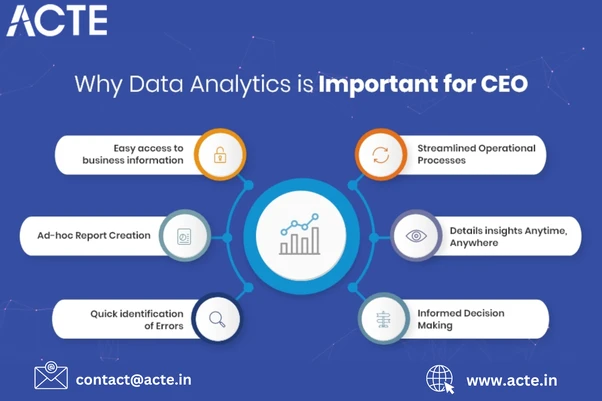In the rapidly evolving business landscape, data has emerged as a crucial resource.
Looking for top-notch Data Analytics Training in Pune Discover comprehensive courses tailored to industry demands.
However, the true power of data lies not in its mere accumulation, but in its analysis and interpretation. This is where data analytics becomes indispensable. By transforming raw data into strategic insights, data analytics helps businesses make informed decisions and gain a competitive edge. Let\'s delve into what data analytics is and why it is a vital component of business success.
Defining Data Analytics
Data analytics is the science of analyzing raw data to draw meaningful conclusions and actionable insights. It involves using various statistical and computational techniques to explore and interpret data, ultimately aiding in decision-making processes.
Types of Data Analytics
Descriptive Analytics: This type of analytics focuses on summarizing historical data to describe past events. It answers the question of "What happened?" by providing a clear view of past performance and trends.
Diagnostic Analytics: This analytical approach seeks to explain the reasons behind specific outcomes. It delves into data to understand the "Why?" behind observed patterns, helping businesses identify underlying factors.
Predictive Analytics: Utilizing statistical models and algorithms, predictive analytics forecasts future trends and potential events. It helps businesses anticipate changes and prepare for future opportunities and challenges.
Prescriptive Analytics: This advanced form of analytics goes beyond prediction by recommending specific actions. It suggests "What should be done?" to achieve desired outcomes based on data-driven insights.
Tools and Methods
Data analytics employs a range of tools and methods, including SQL for data retrieval, Excel for basic analysis, Tableau for visual data representation, and Python libraries like Pandas and NumPy for advanced analytics.
Explore the depths of data analytics with a premier Data Analytics Course Online, accessible from anywhere, anytime.

The techniques used can vary from simple descriptive statistics to complex machine learning models.
The Importance of Data Analytics
Incorporating data analytics into business strategies offers several significant advantages:
Enhanced Decision-Making: Data analytics provides a factual basis for decision-making, reducing reliance on intuition and improving the accuracy of strategic plans.
Operational Efficiency: By identifying inefficiencies and optimizing processes, data analytics can streamline operations, lower costs, and increase productivity.
Customer Insights: Analyzing customer data reveals key insights into consumer behavior and preferences, enabling more effective marketing and personalized customer experiences.
Risk Management: Predictive and diagnostic analytics allow businesses to identify potential risks and develop strategies to mitigate them, safeguarding against potential issues.
Competitive Advantage: Data analytics offers insights into market trends and competitor activities, helping businesses stay ahead of the competition and quickly adapt to market shifts.
Innovation and Growth: The insights gained from data analysis can inspire new ideas and drive innovation, leading to the development of new products and services.
Conclusion
Data analytics is a critical tool for businesses looking to thrive in today\'s data-driven world. It transforms data into valuable insights, guiding strategic decision-making and driving efficiency and innovation. By leveraging data analytics, businesses can better understand their environment, optimize operations, and maintain a competitive edge. In an era where data is an invaluable asset, mastering data analytics is essential for achieving long-term success and growth.

